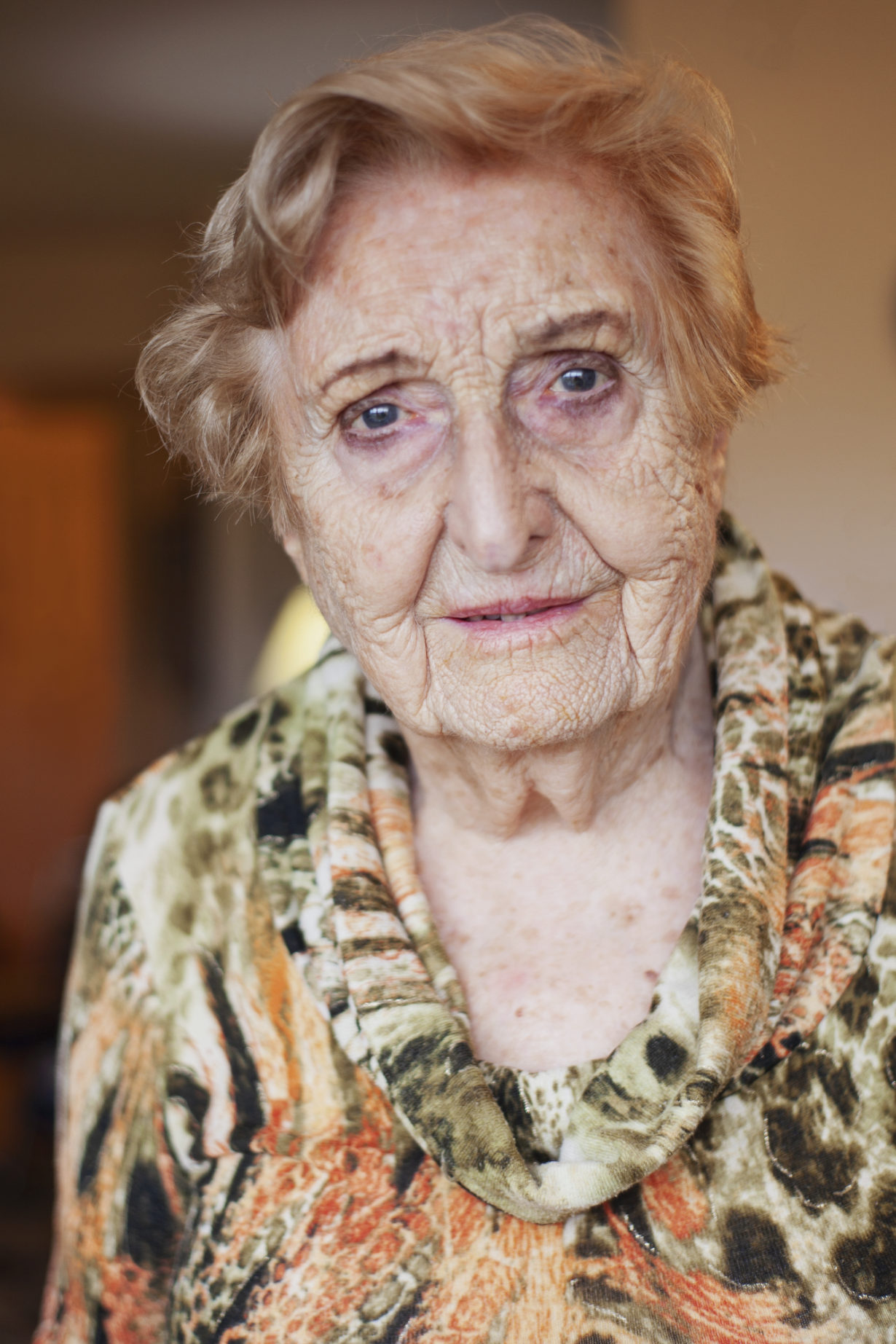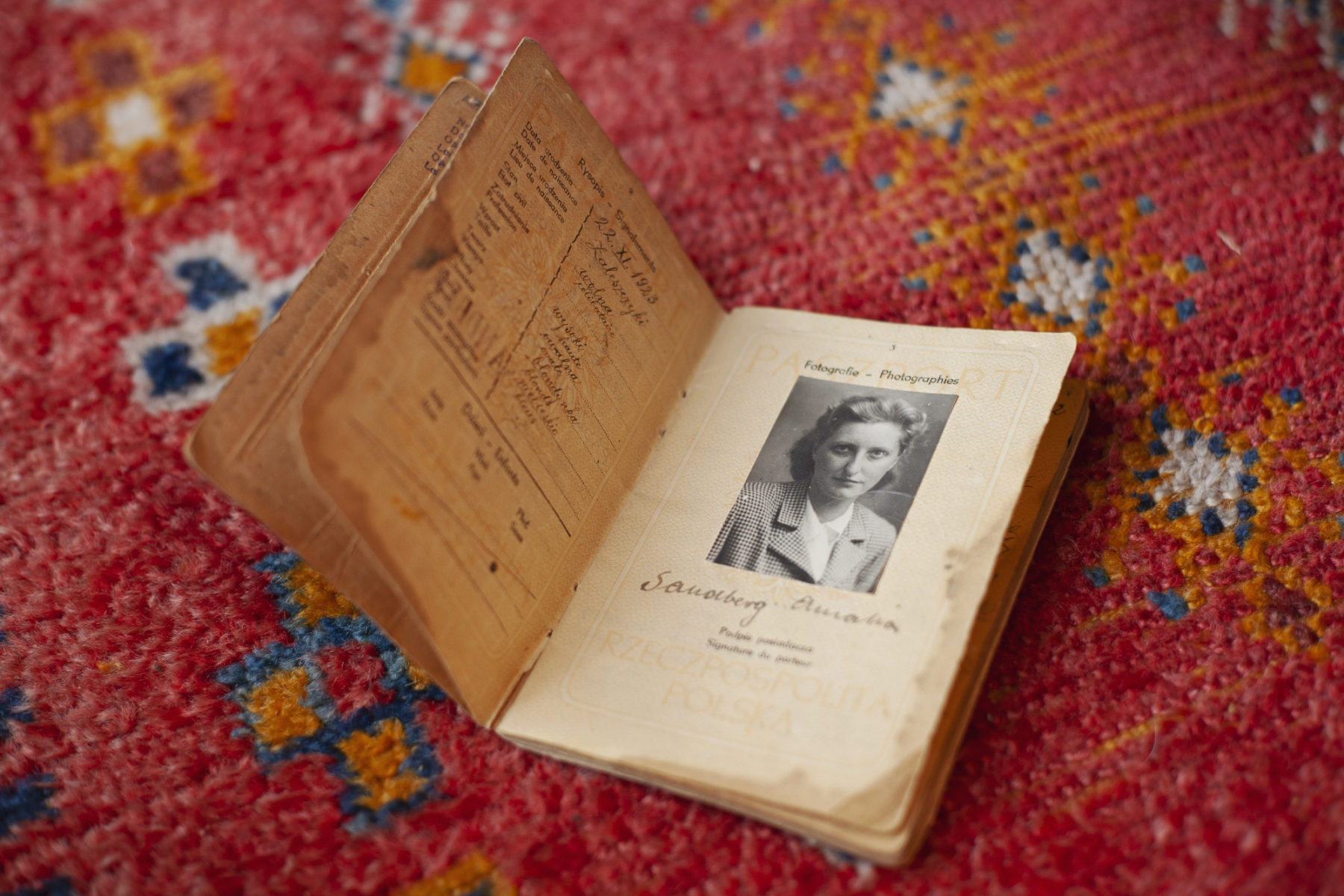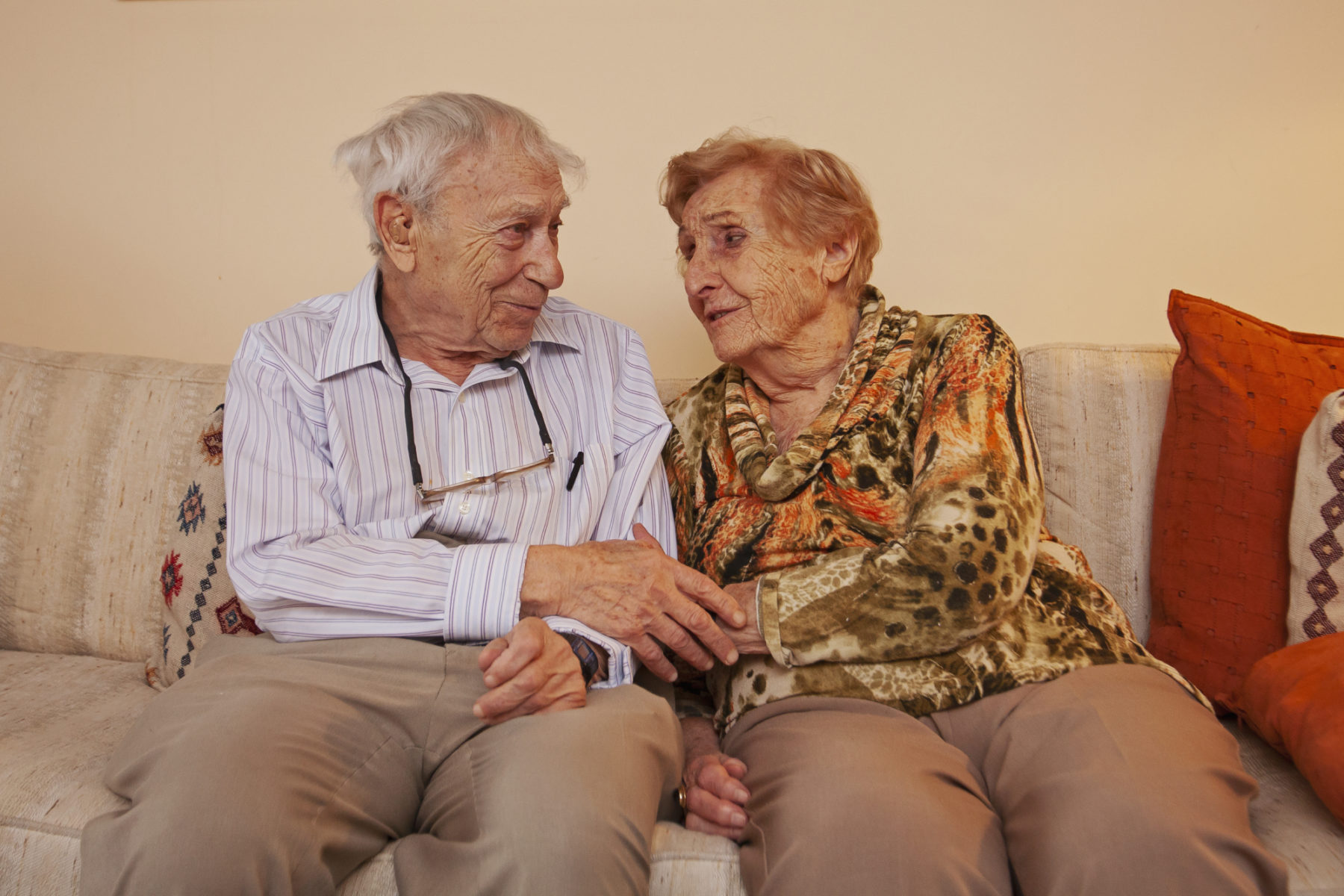
Mila Mesner
A passport to freedom
After the war, Mila Mesner and her family found themselves without papers in Bucharest (Romania). To leave Europe, they had to go to the Polish consulate to obtain the documents required for their departure. As luck would have it, the consul posted to Bucharest knew Mila’s parents. He kindly agreed to help her and her family. On the passport she was given, which you can see below, he indicated that he knew Mila personally. This enabled her to leave Europe in 1947.

Listen to the passport’s story
We found out that in Bucharest (Romania) there is a Joint committee [American Jewish Joint
Distribution Committee] and there is the Polish embassy. And I was advised to go to the Polish embassy
there to report there and get my Polish papers from them. When I arrived at the embassy, I found out
that the ambassador or consul, he was once the prefect of our city and he knew my parents. He didn’t
know me personally but he knew my parents. And he received me very cordially, he invited me to his
private chamber there and he attested to who I am, the date of my birth, and on my passport was
written that identity is confirmed by the były starosta [ex-prefect]. Starosta was the prefect of our city –
our district, not only city, it was a district. And it was interesting, he was very glad to receive me, very
cordially, and his interest was not very much how I escaped but what happened to the things he
possessed – he owned such beautiful furniture in our city – what happened to his furniture. That, I
remember.
Tell me how did you end up in Romania from your city?
People could repatriate to their own country because they were deported. My brother-in-law’s father
was from Romania. So he reported that he is Romanian and he wants to go back to Romania and he has
a family. So it was his wife and his daughter, my sister, my cousin and myself, and the man who saved
our lives. We all joined him as his family to go to Romania.
We arrived in Bucharest just on the day when the peace was announced. We were sitting in the station,
railway station, on the floor there were the few parcels that we had. We didn’t know the language, we
didn’t know where to go, we were completely lost. And at that time, there was already there the Joint
committee but we didn’t know about it. So we were sitting there, people were dancing on the street and
we were crying. The war was over but we knew that we lost everything.


